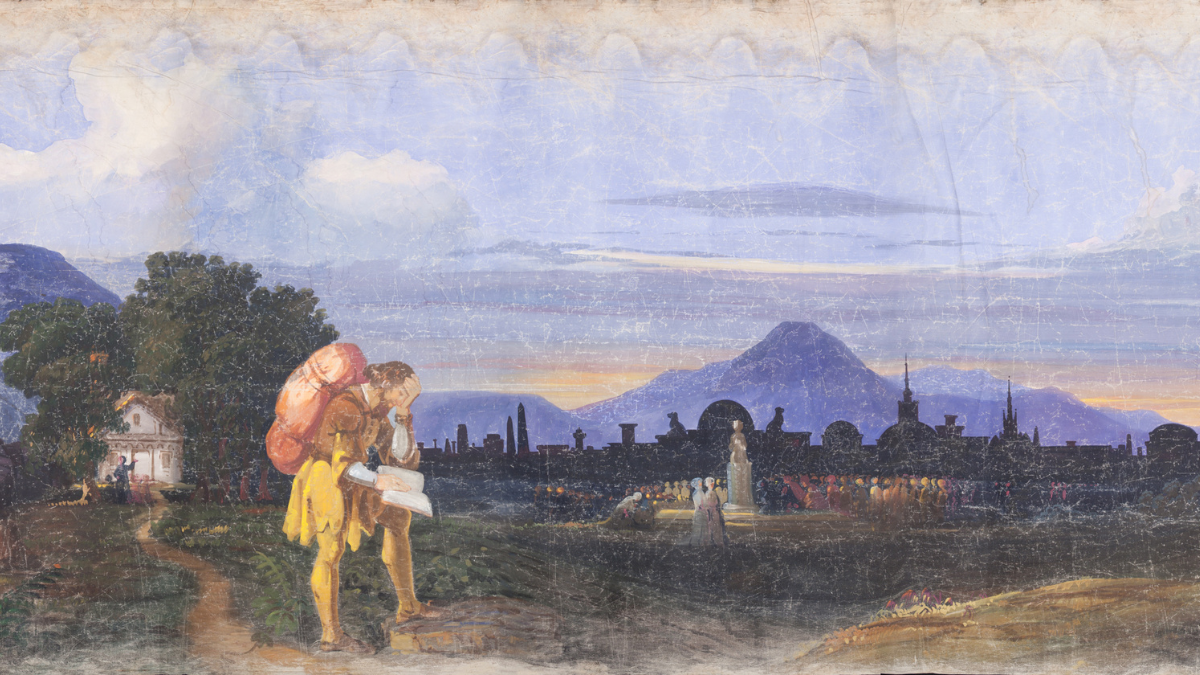

God Behind Bars: John Bunyan, Pilgrim’s Progress, and Chuck Colson
Take it from two giants of faith: Suffering, even to the point of imprisonment, can produce the most powerful witness.
11/7/23
John Stonestreet, Chuck Colson Kasey Leander

In November of 1660, Puritan lay preacher John Bunyan was arrested and subsequently spent the next 12 years in prison. Under the restored monarchy of Charles II, dissent from the Church of England was once again illegal. Initially sentenced to three months, under the condition that he would stop preaching, Bunyan famously replied that he was willing to suffer “till the moss shall grow on mine eyebrows, rather than thus to violate my faith and principles.”
In prison, Bunyan completed one of the all-time, best-selling works of Christian literature, The Pilgrim’s Progress.
Chuck Colson was deeply impacted by this book. Here’s Chuck, in his own words:
It has often been described as the most popular and most influential book ever published—after the Bible, that is. Yet many literary critics of its time treated it with scorn. Its author was simply a humble Puritan minister who wrote it while imprisoned for his faith. He was not even sure if he should publish it. If you have not guessed it yet, I am talking about The Pilgrim’s Progress by John Bunyan. …
Pilgrim’s Progress is a powerful story of one Christian’s journey through life. The people, encounters, and struggles he faces have become part of the English language: Mr. Worldly Wiseman, Vanity Fair, the Slough of Despond, and so many more. Yet Bunyan was not even trying to be particularly clever or original. As [Dr. Ken] Boa reminds us, Bunyan’s thinking was so steeped in the Scriptures that his book is filled with “literally hundreds and hundreds of allusions” to biblical references and concepts, and this is what makes its imagery so striking and memorable. As Charles Spurgeon, who used to read The Pilgrim’s Progress twice a year, said of Bunyan, “If you cut him, he would bleed Bible.”
The book’s theological depth makes it almost suitable for a “catechesis” of the Christian faith. And something that has always amazed me about Pilgrim’s Progress is just how real Bunyan’s characters are. The pilgrims at the center of the story are no Christian supermen, no perfect moral heroes. Boa points out, “There are many weaknesses in [the characters] Christian and Faithful … and we see that faith co-exists with failings.”
Just like any biblical hero, the Christian characters here must ask for God’s help in fighting their own flaws and failures. Their intentions are good, but they are too easily lured away from their path or cast down by their troubles. As Boa says, “It is Christian’s actual frailty, his fallibility that arouses our sympathy for him and makes us wonder what is going to happen next.”
Unlike much Christian fiction of our own time, Bunyan’s allegory does not try to tiptoe around the fact of sin. The wise Puritan preacher knew he would have been remiss not to deal with it. In many ways, his heroes, despite the seventeenth century setting, are just like us, which is why Pilgrim’s Progress still fascinates us. Fascinates us and encourages us, as well—for as Boa goes on to say, Bunyan’s book teaches us that “any man, any woman, through grace, can become a Christian hero.”
It is a lesson that has carried down through the centuries and is just as powerful today as ever—not bad for a simple Puritan preacher.
Chuck Colson knew, of course, what it was like to not only be in prison but to experience the presence of the Lord in the midst of prison. In the epilogue of his autobiography Born Again, Chuck wrote, “I found myself increasingly drawn to the idea that God had put me in prison for a purpose and that I should do something for those I had left behind.”
Among the lessons to be learned from the stories of John Bunyan and Chuck Colson is that suffering can produce the Christian’s most powerful witness, and that God is faithful to His people everywhere, even behind bars.
This Breakpoint was co-authored by Kasey Leander. For more resources to live like a Christian in this cultural moment, go to breakpoint.org.
Have a Follow-up Question?
Related Content

© Copyright 2020, All Rights Reserved.














